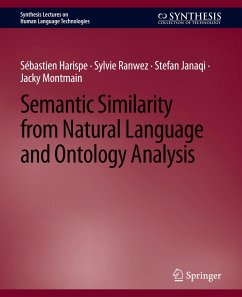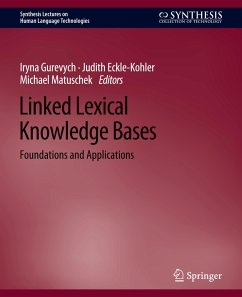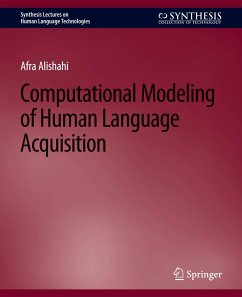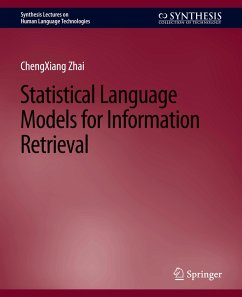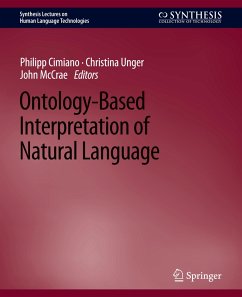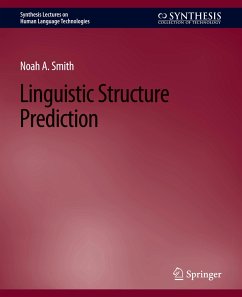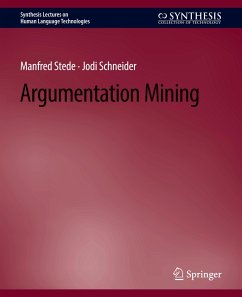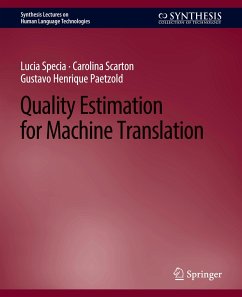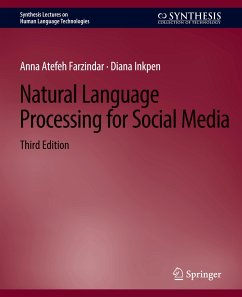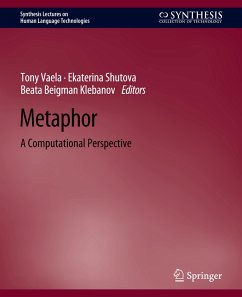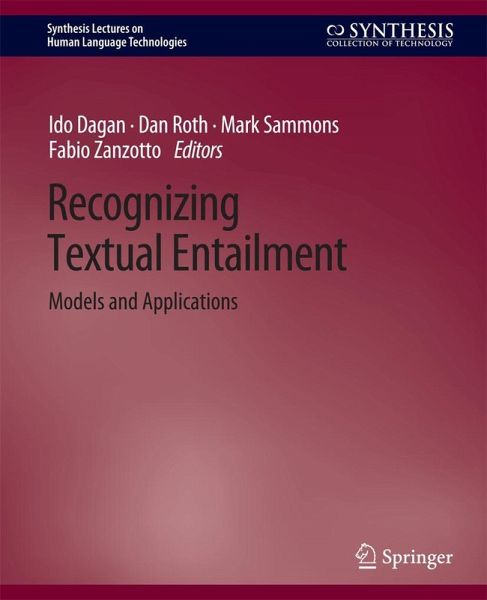
Recognizing Textual Entailment
Models and Applications

PAYBACK Punkte
0 °P sammeln!
In the last few years, a number of NLP researchers have developed and participated in the task of Recognizing Textual Entailment (RTE). This task encapsulates Natural Language Understanding capabilities within a very simple interface: recognizing when the meaning of a text snippet is contained in the meaning of a second piece of text. This simple abstraction of an exceedingly complex problem has broad appeal partly because it can be conceived also as a component in other NLP applications, from Machine Translation to Semantic Search to Information Extraction. It also avoids commitment to any sp...
In the last few years, a number of NLP researchers have developed and participated in the task of Recognizing Textual Entailment (RTE). This task encapsulates Natural Language Understanding capabilities within a very simple interface: recognizing when the meaning of a text snippet is contained in the meaning of a second piece of text. This simple abstraction of an exceedingly complex problem has broad appeal partly because it can be conceived also as a component in other NLP applications, from Machine Translation to Semantic Search to Information Extraction. It also avoids commitment to any specific meaning representation and reasoning framework, broadening its appeal within the research community. This level of abstraction also facilitates evaluation, a crucial component of any technological advancement program. This book explains the RTE task formulation adopted by the NLP research community, and gives a clear overview of research in this area. It draws out commonalities in this research, detailing the intuitions behind dominant approaches and their theoretical underpinnings. This book has been written with a wide audience in mind, but is intended to inform all readers about the state of the art in this fascinating field, to give a clear understanding of the principles underlying RTE research to date, and to highlight the short- and long-term research goals that will advance this technology.



